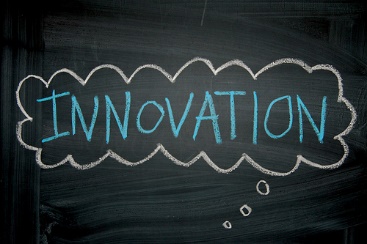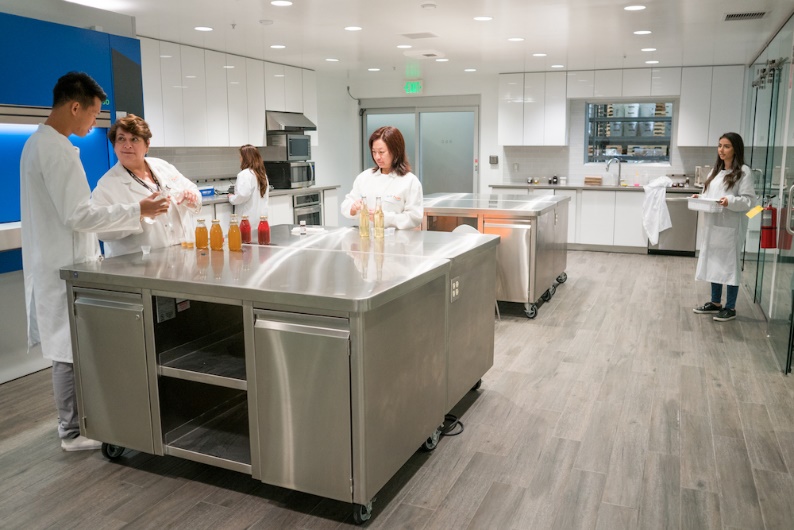By Teresa Jurgens-Kowal, PE, CPEM, PMP®, NPDP
(EMBOK Blog Post #9)
 Dictionary.com defines innovation as “something new or different introduced.” Engineers of all stripes are involved daily in creating and introducing new and different processes and products. We work in the creation of new knowledge that pushes the boundaries of scientific understanding. And we work to improve the efficiency and productivity of manufacturing systems to deliver products and services to a global customer base. At the heart of innovation is providing “new and different” to customers.
Dictionary.com defines innovation as “something new or different introduced.” Engineers of all stripes are involved daily in creating and introducing new and different processes and products. We work in the creation of new knowledge that pushes the boundaries of scientific understanding. And we work to improve the efficiency and productivity of manufacturing systems to deliver products and services to a global customer base. At the heart of innovation is providing “new and different” to customers.
EMBOK Domain 8
Domain 8, “Management of Technology, Research, and Development,” in the Engineering Management Body of Knowledge (EMBOK) complements Domain 7, “Marketing and Sales Management in Engineering Operations” because only innovations that support market needs are desired. Domain 8 also directly ties to Domain 4 and Domain 5 which discuss financial management and project management, respectively. Finally, Domain 3, addressing strategic planning, is a key input to any innovation process. (Get your copy of the EMBOK here.)
Innovation is comprised of several areas of technical expertise and of engineering management practice. Innovation starts with the organization’s strategy to provide a mission for R&D teams, developers, and design engineers. As described in Sections 8.2 and 8.3 of the EMBOK, companies are striving for higher levels of innovation to deliver product and process improvements faster due to pressures from globalization and rapid technology advances. Industries are being disrupted by low-cost competitors as well as alternative products and services that previously didn’t exist.
Consider that today we call an Uber or Lyft ride from our cell phone and pay a negotiated rate, when just a few years ago, we instead queued up at taxi stands and paid a rate fixed by the local government rather than a rate fixed by the local government rather than a free market rate.
An Engineer’s Role in Innovation
 Engineers and engineering managers are involved at all stages of innovation and technology management and may find themselves working in different arenas at different points in their careers. For example, a newly minted engineer may work on process improvements in the plant or factory as a contact engineer. Innovation assignments at this stage involve improving process throughput and reducing defects and downtime to improve the product quality. (Please also see the post on Domain 6, “Quality, Operations, and Supply Chain Management.”)
Engineers and engineering managers are involved at all stages of innovation and technology management and may find themselves working in different arenas at different points in their careers. For example, a newly minted engineer may work on process improvements in the plant or factory as a contact engineer. Innovation assignments at this stage involve improving process throughput and reducing defects and downtime to improve the product quality. (Please also see the post on Domain 6, “Quality, Operations, and Supply Chain Management.”)
Next, an engineer may work on the design and development of a new product or process. New products are typically created following a standard project management process and follow stages as described in Section 8.5.
- Feasibility study
- Product Design
- Testing
- Production
An important element to successful new product development (NPD) is to consider life-cycle design, including “D4X” or “design for ____”. Successful innovations address D4X upfront, such as Design for Environment (Section 8.5.7.3) and Design for Reliability (Section 8.5.7.5). Attention to such details improves the acceptance of the new product or process by both internal and external customers.
 Engineers and engineering managers may also spend time working in R&D labs. As described in Section 8.1.1 of the EMBOK, R&D activities range from scientific discovery to applied technical research, and to design and development functions described above. In research labs, engineers and engineering managers work closely with specialists, such as chemists, physicists, and material scientists, to convert conceptual ideas into practical manifestations. R&D engineers often bridge the gap between fundamental science and functional implementations. After all, most inventions are not profitable until they are translated to innovative products which are manufactured and sold into a marketplace.
Engineers and engineering managers may also spend time working in R&D labs. As described in Section 8.1.1 of the EMBOK, R&D activities range from scientific discovery to applied technical research, and to design and development functions described above. In research labs, engineers and engineering managers work closely with specialists, such as chemists, physicists, and material scientists, to convert conceptual ideas into practical manifestations. R&D engineers often bridge the gap between fundamental science and functional implementations. After all, most inventions are not profitable until they are translated to innovative products which are manufactured and sold into a marketplace.
Finally, at advanced career stages, engineering managers help to direct and frame the R&D and innovation programs to meet strategic goals of the organization. Some innovation strategies will involve projects to address weaknesses and threats to the company or industry by global competition or from new technologies. Other R&D projects will capitalize on the strengths and opportunities of an individual company that has discovered new technical applications to improve existing products or operations. Engineering managers will also work closely with other corporate executives to select the most appropriate portfolio of innovation projects to advance the organization’s strategic vision.
Innovation is Important!
Innovation is a tremendously exciting field in which engineers and engineering managers are privileged to work. Domain 8 of the EMBOK provides a tiny taste of the wonderful and vast career opportunities in new product development and R&D. As you read through Domain 8, you will note that innovation touches and is touched by virtually every other domain in the EMBOK. Engineers and engineering managers create and improve products and processes deploying a wide range and depth of skills and competencies. And while every day is different and technically challenging, engineers and engineering managers that support innovation activities are never bored!
Please feel free to contact me for more information on innovation – it is my passion and I feel lucky to share this brief overview of EMBOK Domain 8, “Management of Technology, Research, and Development”.
Today, consider how your work as an engineer or engineering manager impacts innovation. What can you do to improve technology in processes or products?
About the Author
Teresa Jurgens-Kowal, PE, CPEM, PMP®, NPDP, is a passionate lifelong learner. She enjoys helping individuals and companies improve their innovation programs and loves scrapbooking. You can learn more about Teresa and her new Innovation MasterMind group by connecting on LinkedIn.
